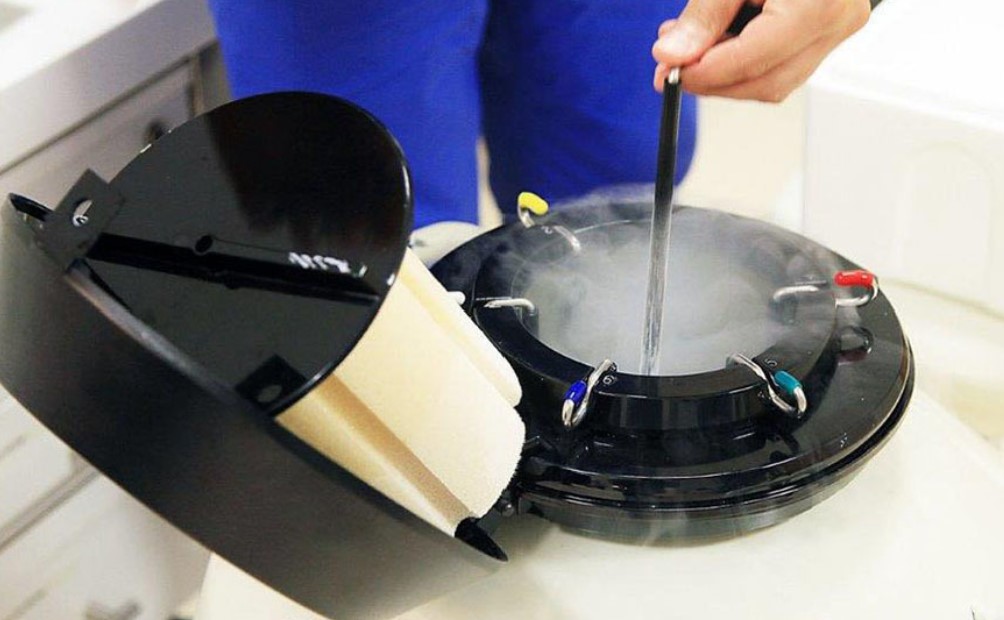Bill to Guarantee Access to IVF Nationwide Blocked by Senate GOP
On Thursday, Senate Republicans blocked a Democratic bill that sought to secure nationwide access to in vitro fertilization (IVF).
The bill did not advance in a procedural vote, with a count of 48-47, falling short of the required 60 votes.
An Unnecessary Bill
Republicans criticized the bill as unnecessary and merely a political maneuver.

Source: Kelly Sikkema/Unsplash
“Why should we vote for a bill that fixes a non-existent problem? There’s not a problem. There’s no restrictions on IVF, nor should there be,” stated Republican Sen. John Cornyn of Texas.
Polar Opposite Views
This vote is part of a larger effort by Senate Democrats to emphasize the differences with Republicans on reproductive health care ahead of the November elections.

Source: Depositphotos
Moreover, it coincides with the two-year anniversary of the Supreme Court’s decision to overturn Roe v. Wade.
“MAGA Hard Right”
Senate Majority Leader Chuck Schumer condemned the Republicans.

Source: Mobilus in Mobilil, Wikimedia
The Republicans voted against the bill, accusing them of being swayed by the “MAGA hard right.”
IVF Access Threatened
“These are the very same people who pushed to get rid of Roe in the Dobbs decision,” Schumer told CNN’s Erin Burnett on “OutFront” Thursday evening, referring to the 2022 Supreme Court decision which overturned a constitutional right to abortion.

Source: Freepik
“We know what they’re up to. They want to get rid of IVF, they’re afraid to say it.”
“Outrageous and unacceptable”
President Biden also criticized Senate Republicans after the vote. “Once again, Senate Republicans refused to protect access to fertility treatments for women who are desperately trying to get pregnant,” Biden said in a statement.

Source: Wikimedia Commons
“And just last week, Senate Republicans blocked nationwide protections for birth control. The disregard for a woman’s right to make these decisions for herself and her family is outrageous and unacceptable.”
Right to IVF Act
The proposed legislation, named the Right to IVF Act, aimed to establish a federal right to receive and provide IVF treatment, overriding any state-level restrictions.

Source: prostooleh, Freepik
It also sought to make IVF more affordable by requiring coverage under employer-sponsored insurance and certain public insurance plans, including those for military personnel and veterans.
Frozen Embryos Classed as Children
The bill was introduced by Democratic Senators Patty Murray of Washington, Tammy Duckworth of Illinois, and Cory Booker of New Jersey.

This vote follows a recent ruling by the Alabama Supreme Court that classified frozen embryos as children, holding individuals accountable for wrongful death if they destroy them – a decision warned by reproductive rights activists that could have a detrimental effect on infertility treatments.
Impact on Reproductive Healthcare
While the state legislature acted to safeguard IVF following the ruling, Democrats argue that such rulings endanger access to reproductive health care nationwide.

Source: Saulo Zayas/Pexels
Southern Baptist delegates recently expressed alarm over IVF practices, approving a resolution condemning the creation and destruction of surplus frozen embryos.
Access to Contraception
The recent vote on the IVF bill is another attempt by Democrats to introduce legislation likely to be blocked by Republicans.

Source: rattanakun/Canva
Last week, Senate Republicans also blocked a Democratic bill that would ensure access to contraception, with GOP Senators Lisa Murkowski of Alaska and Susan Collins of Maine siding with Democrats.
IVF Protection Act
Republicans have proposed their own bills on IVF and contraception.

Source: Sarah Johnston/Canva
Senators Katie Britt of Alabama and Ted Cruz of Texas introduced the IVF Protection Act, and Senator Joni Ernst of Iowa proposed a bill to promote access to contraception. However, Democrats blocked Britt and Cruz’s IVF bill on Wednesday.
Medicaid Funding
Murray opposed the GOP bill, arguing that it would allow states to impose burdensome requirements, leading to legal uncertainties and potential clinic closures.

Source: 123RF
According to a press release, the IVF bill from Britt and Cruz stipulates that states restricting access to IVF would lose their Medicaid funding, though it “permits states to implement health and safety standards regarding the practice of IVF.”
